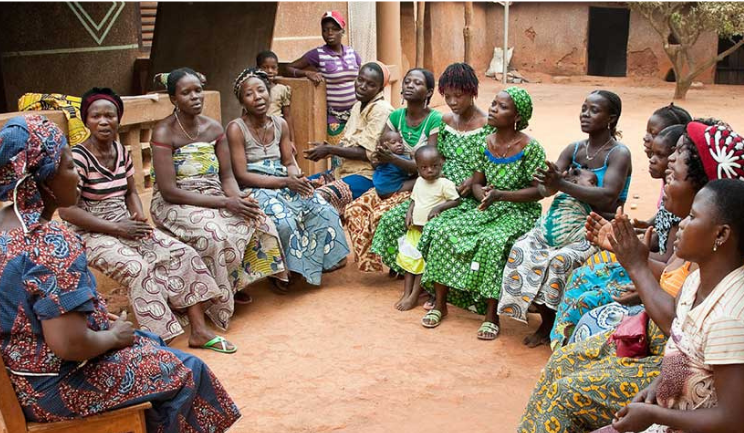Blog Post by Ibrahim Sultan, Research and Advocacy Intern, MCLD
Before beginning my internship with the Movement for Community-Led Development (MCLD or the Movement), I thought I understood what International Development and working to make the lives of people around the world better meant. I now know that I did not, at least not fully. Coming from an education in International Relations, in which the study of how the world is governed is centered on entire countries and large global institutions that make any one person feel insignificant, I assumed the work to make the lives of people better, more dignified, and more hopeful also must need to be undertaken by these powerful entities with the means to help.
During my first meeting on my first day with the Movement I encountered lots of new faces of people working to make the world better (like I wanted to) and I was introduced to an abbreviation: CLD. I soon learned that it stood for Community-led Development.
I have learned many things during my three months with MCLD, one of the most profound being that people and communities, not large global institutions, make the change they need. It’s a statement that seems so simple. The framing isn’t particularly confusing, but it’s contrary to how international development has often been practiced and taught.
From small individual circumstances to larger global issues, prioritizing communities, their knowledge and experiences, presents a better way towards the world’s collective development and sustainability goals. Early in my internship, I attended an event hosted by the Movement, entitled Pandemics, Environment, and Communities as part of their ongoing Adapting CLD to COVID-19 virtual call series. As you can picture by the title, some of the most pressing issues of our time were discussed. Where I previously imagined teams of scientists and world leaders conveying as the only actors able to make change, I learned that communities that live near animals and in more rural settings are the frontline against the spread of zoonotic diseases like COVID-19 and against further environmental damage. Speaker David Bonnardeaux, the Director of Environment at Pact, explained that when given the opportunity and resources to have productive lives and access to sanitation, it makes those communities and the animals they might come into contact with safer: safer from harm, safer from disease, and more protection for the environment. This then translates into benefits not only for them but for us as mitigation of disease and environmental damage which affects us all.
As I entered, what I hope will be the beginning of my career in development, I watched as one of the most widely known and far-reaching bilateral organizations, USAID, made plans to realign its strategy to more closely align with CLD. At an online event with Ambassador Donald Steinberg, Expert Advisor to the USAID Administrator Samantha Power, I heard USAID’s plans to shift the way it does humanitarian and development work as Administrator Power looks to work more with communities and to change power dynamics between different actors involved in development from the donors to the communities. This, if nothing else, led me to the conclusion that CLD works; it’s a more meaningful way to conduct development, and leads to longer lasting change.
At MCLD, I have also been taught about perhaps one of the most important aspects of development work – inclusivity; to ensure that not only are community leaders involved in projects but women, the disabled, the LGBTQI+ community and any other groups within local communities whose voices are not often heard. I am currently working towards a Master’s Degree in Development Studies at SOAS University of London, a school that prides itself on teaching from a non-western perspective. Throughout my studies so far, many times tenets of CLD are invoked not only to create effective and lasting change, but to correct historical injustices. My courses have touched on how often development programs are undertaken by aid workers from the global North with little connection or cultural knowledge of the places they seek to aid. It has been commonplace that when a project is considered “complete” and foreign aid workers leave, the situation or problem that was attempted to be eased reverts to what it once was.
CLD allows those who have been exploited and historically oppressed to have a voice in the direction their lives take and how they will improve their communities for future generations. It allows for the decolonization of development work, and is inclusive, enabling those from marginalized groups to take part in the direction their community takes.
I hope to bring the ideas that have been presented to me at MCLD and apply them to my work in the future. I hope to work in Latin America, specifically with indigenous peoples in Central America who have historically been marginalized from mainstream society. CLD provides the framework to not only help in different areas of development, but also to empower and to make sure communities have the means to create their own futures and extend that help to others. My time with The Hunger Project and MCLD has shown me that CLD is necessary to create a more just, inclusive, and sustainable future for people around the globe.
Featured photo credit: The Hunger Project, by Johannes Ode (Doutin, Benin)


